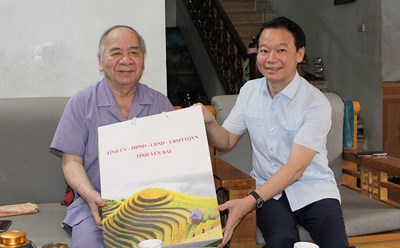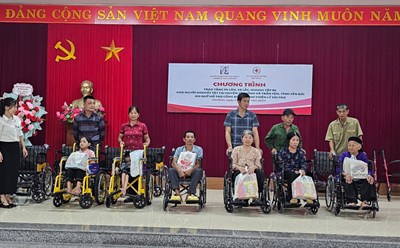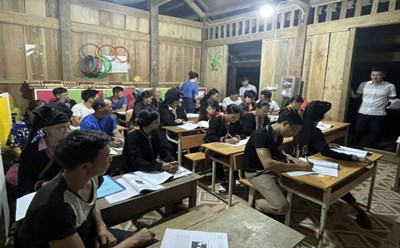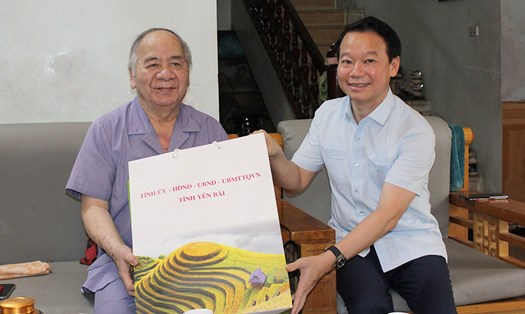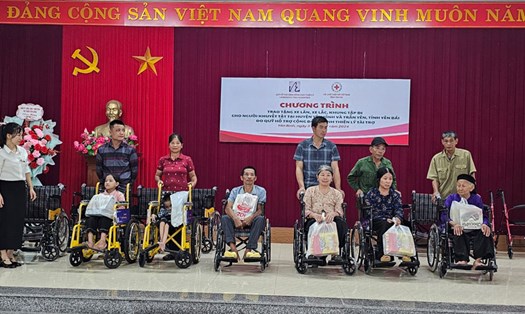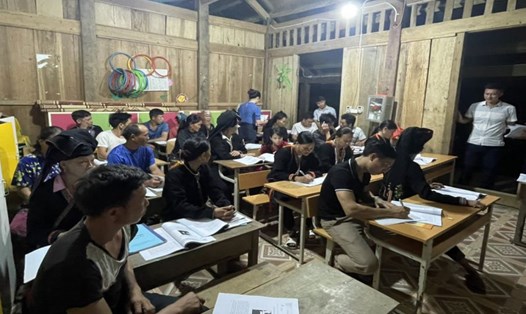On August 30, speaking with Lao Dong Newspaper reporter, Ms. Dong Thi Hong Hanh - Director of Yen Bai Provincial Library said that the unit has just finished the journey of donating 9,360 copies of books to 30 communes in ethnic minority and mountainous areas in 5 districts: Mu Cang Chai, Tram Tau, Van Chan, Nghia Lo and Luc Yen.
Previously, Yen Bai Provincial Library coordinated with the Department of Culture and Information, the Communication and Cultural Centers of districts and communes to survey the conditions and information needs of ethnic minorities in the localities to select appropriate topics and book titles.
Immediately after receiving the " Community Bookcase ", local authorities arranged space at the People's Committee headquarters to place the bookcase so that everyone could find books to read most conveniently.
At the same time, the communes also directed local associations and organizations to actively promote and introduce bookcases and good books, provide guidance on information searching skills, reading skills, and choosing books suitable for each subject and age.
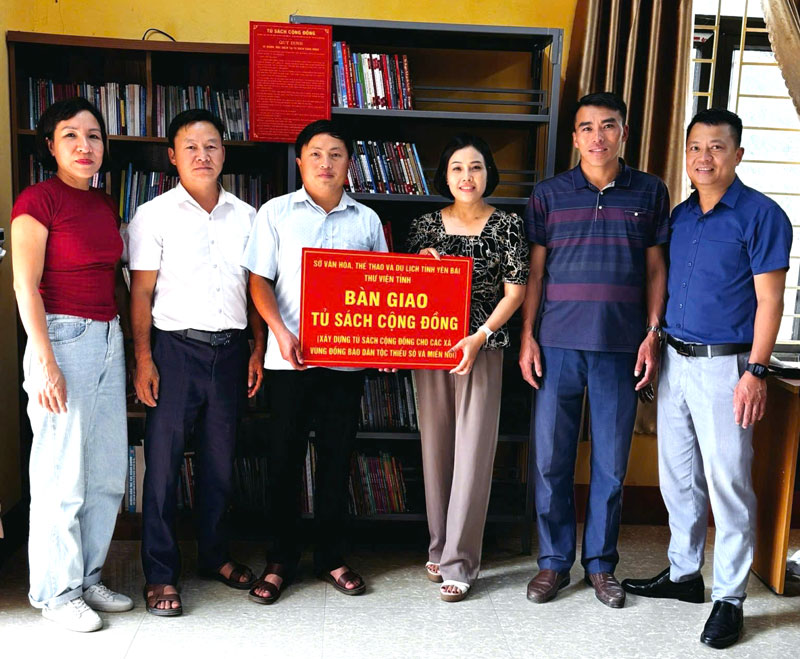
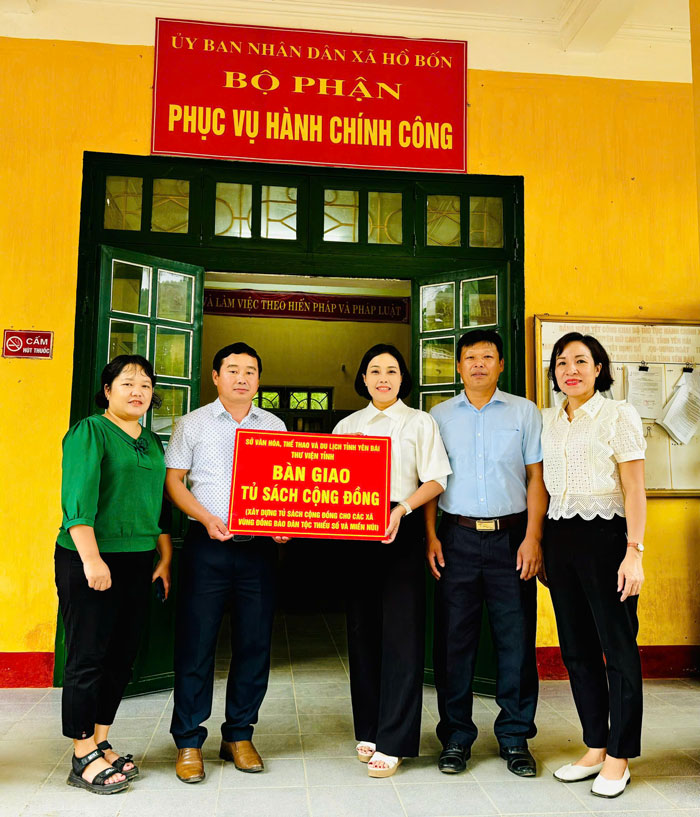
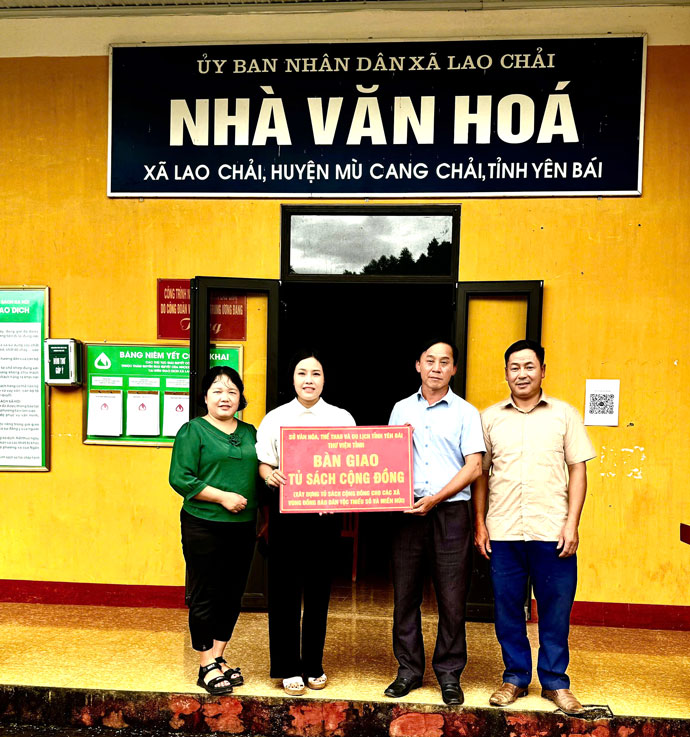
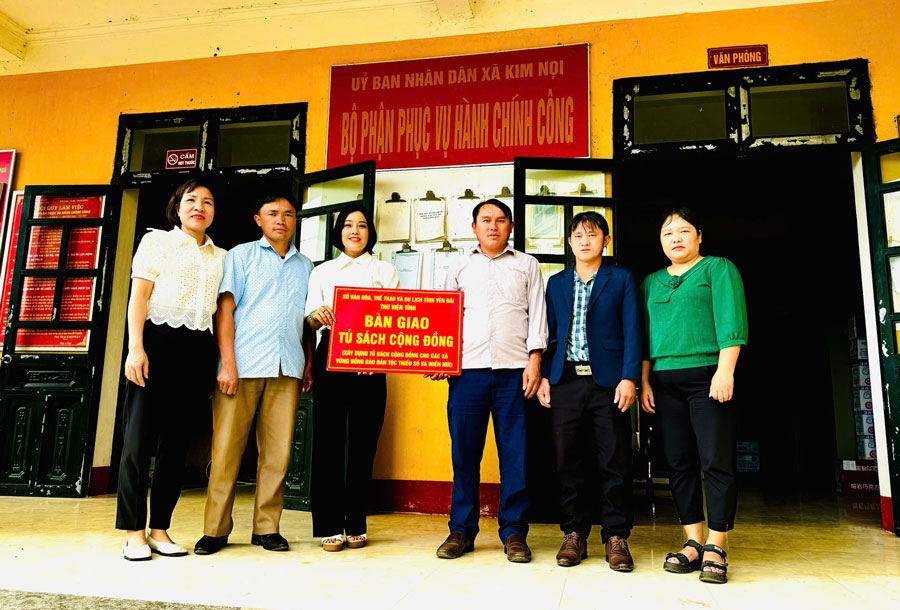
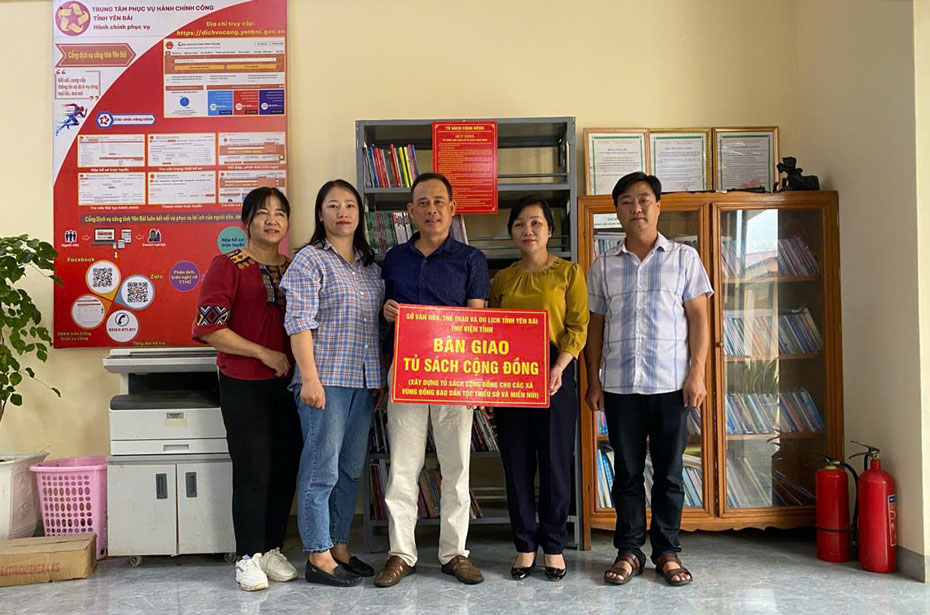
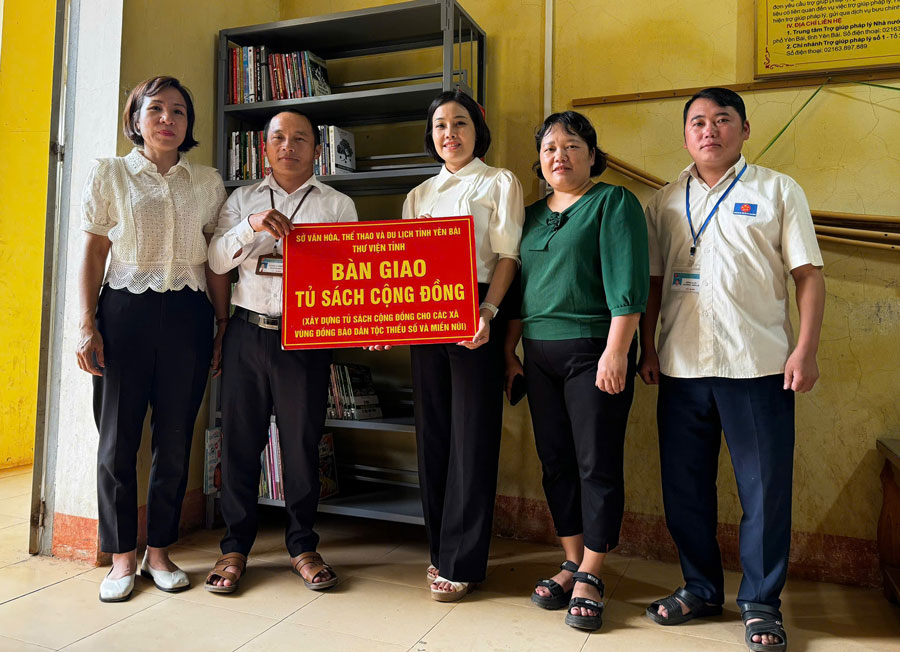
It is known that each "Community Bookcase" donated by Yen Bai Provincial Library to communes in ethnic minority and mountainous areas includes 1 bookcase and 312 books on diverse contents such as: customs and practices of ethnic minorities; policies, guidelines, laws on culture, sports, family, tourism; marriage and family, prevention of early marriage and incestuous marriage; building grassroots cultural life; introducing unique cultural beauty of families, villages, and communes in the community; technical methods of cultivation and animal husbandry; sustainable tourism development models in ethnic minority areas and tourist destinations...
“Community bookcases play an important role in developing a reading culture in ethnic minority areas, helping people equip themselves with knowledge about economic development, awareness of preserving, protecting and promoting traditional cultural beauty. This activity also narrows the gap in cultural enjoyment between urban and rural areas, remote areas, between advantaged and disadvantaged areas…”, Ms. Dong Thi Hong Hanh shared.

